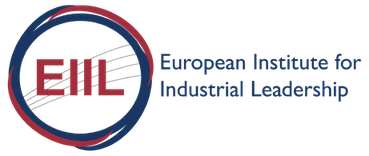As I’ve been preparing to launch #EIIL #TransitionGeneration report I’ve also been spending some time building other projects, hoping that they would bear fruit. Now, I suddenly have 4 projects to juggle all at the same time, and I’m finding ways to protect myself from the flood. I know it’s only a few days, and if I can survive one more week at, three of the four activities will be behind me and I will be able to breathe again.
The fourth is more complex. I have started a new assignment and it’s a new branch of work. I have lots of things to learn. I’m like a new graduate, keen to make an impact and please my new boss, but I don’t know all that I need to. I ask lots of questions but often it only adds to my confusion.
With every question, I get an avalanche of too much information dropped on me by people who know a lot more than me.
As part of the Transition Generation report we highlighted the need for a controlled knowledge flow.
Knowledge is like water and flows downhill from giver to receiver. But too much of a gradient and the flow becomes a flood that can’t be processed. The receiver closes the flood defences and although the giver still gives the receiver has switched off.
Like many knowledgeable people in industry, my new colleagues don’t understand about the knowledge gradient but I can help them. I can use my past experience to manage the flow.
I’ve lost my shyness about asking questions, and I know that the only stupid question is the one you don’t ask. With the benefit of experience, I can force the givers in my team to control the amount of information so that I can manage.
How about the new recruits in your team? Who is taking care that the knowledge they need is flowing at just the right rate for them. Graduates don’t know how to manage the knowledge gradient in the same way that I can. Asking questions is always difficult, especially when you have to ask about the same subject many times until you really understand it. The Millennials and Generation C are especially afraid showing that they don’t understand the subject, so they don’t keep asking the important questions. It can lead to a situation where the giver is happy that he has shared what he knows, but the receiver has gone away with nothing.
It is the knowledge giver who has to manage the knowledge gradient especially when dealing with the new recruits. A knowledge giver should have both the knowledge to give, but also the skill to give it correctly. Just knowing a topic is no longer enough when dealing with the youngest generations in the workplace. It is increasingly important to know how to share the knowledge as well. The giver has to know his audience and what they need which is why the Transition Generation are one of the best to manage the Knowledge flow process. The Transition Generation understand the newest generations entering the workplace better than any other generation in the workplace.
My flood of project deadlines will soon pass, but the information overload of the new job will take longer. My knowledge is getting better every day, and I am helping my colleagues to get better at sharing the knowledge. We can do this because we are in an unusual grey to grey scenario where as a learner, I can also coach. In most organisations it is a grey to Green process.
Who is helping your knowledge givers learn how to give?
Paul Bennington

